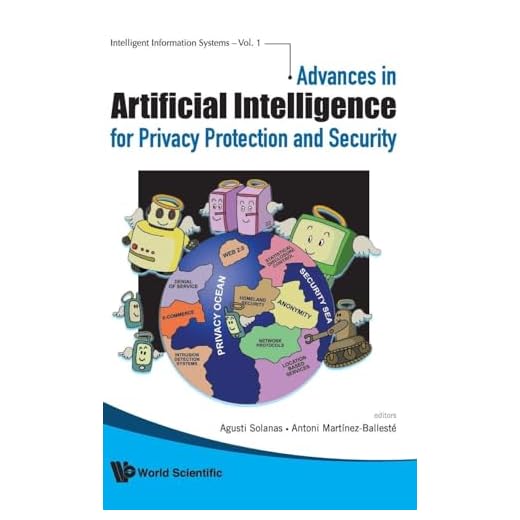


Security cameras have become ubiquitous in our modern society, with surveillance systems installed in public places, businesses, and even private residences. While these cameras are intended to enhance safety and security, the question of whether they constitute an invasion of privacy is a contentious issue.
On one hand, security cameras can help deter crime and provide valuable evidence in the event of an incident. They can also offer a sense of security to individuals in public spaces.
However, privacy advocates argue that the constant surveillance by security cameras infringes upon individuals’ right to privacy. They raise concerns about the potential misuse of surveillance footage and the erosion of personal freedoms.
Pros of Security Cameras:
1. Deterrence of Crime: One of the main advantages of security cameras is their ability to deter criminal activity. Knowing that an area is under surveillance can discourage potential criminals from committing unlawful acts.
2. Evidence Collection: Security cameras can provide valuable evidence in the event of a crime or dispute. The footage captured by these cameras can be used by law enforcement to identify suspects and solve cases.
3. Remote Monitoring: Security cameras allow homeowners and businesses to monitor their properties remotely. This can provide peace of mind and a sense of security, especially when away from home or the office.
4. Increased Safety: Security cameras can help improve safety in public spaces, workplaces, and residential areas. They can alert authorities to emergencies, monitor hazardous situations, and prevent accidents.
5. Protection of Property: By installing security cameras, property owners can protect their assets from theft, vandalism, and other forms of damage. This can lead to cost savings and insurance benefits.
6. Monitoring of Activities: Security cameras can be used to monitor employee activities in workplaces, ensuring productivity and adherence to company policies. They can also help prevent workplace harassment and misconduct.
Advantages of Security Cameras
Security cameras act as a deterrent to potential criminals, reducing the likelihood of theft, vandalism, and other crimes.
They provide valuable evidence in case of criminal activities, helping law enforcement agencies to solve cases and bring perpetrators to justice.
Improved Monitoring
Security cameras allow for real-time monitoring of activities in a specific area, providing a sense of security and peace of mind to residents and property owners.
Increased Safety
Security cameras can help prevent accidents and emergencies by monitoring high-risk areas and alerting authorities in case of suspicious or dangerous behavior.
Benefits of Surveillance Systems
Surveillance systems offer a range of benefits that can enhance security and safety in various environments. Some of the key advantages include:
Crime Deterrence
Visible surveillance cameras can act as a deterrent to potential criminals, reducing the likelihood of crimes such as theft, vandalism, and trespassing.
Improved Monitoring
Surveillance systems enable real-time monitoring of activities and events, allowing security personnel to respond quickly to incidents and threats.
| Enhanced Safety | Surveillance systems can help ensure the safety of individuals in public spaces, workplaces, and homes by providing a constant watchful eye. |
| Evidence Collection | Recorded footage from surveillance cameras can serve as valuable evidence in investigations and legal proceedings, aiding in the identification and prosecution of perpetrators. |
Overall, surveillance systems play a crucial role in enhancing security measures and promoting a safer environment for individuals and communities.
Positive Aspects of CCTV
1. Increased Security: CCTV cameras help deter crime and provide evidence in case of incidents like theft or vandalism.
2. Monitoring Public Areas: CCTV cameras can help keep public spaces safe by monitoring activities and identifying potential threats.
3. Employee Safety: CCTV cameras in workplaces can help ensure the safety of employees by monitoring for any hazards or suspicious activities.
4. Traffic Management: CCTV cameras assist in monitoring traffic flow and detecting accidents, improving overall road safety.
5. Evidence in Legal Proceedings: CCTV footage can serve as crucial evidence in legal proceedings, helping to resolve disputes and bring justice.
Advantages of Video Monitoring
There are several advantages to having security cameras for video monitoring:
- Crime Deterrence: Visible security cameras can deter potential criminals from committing crimes, as they know they are being watched.
- Monitoring of Property: Video monitoring allows you to keep an eye on your property remotely, providing peace of mind when you are not there.
- Evidence Collection: In case of any incidents or crimes, video footage can serve as valuable evidence for investigations and legal proceedings.
- Remote Access: Modern security cameras often come with remote access features, allowing you to view live footage from anywhere using your smartphone or computer.
- Insurance Benefits: Some insurance providers offer discounts on premiums for properties with video monitoring systems, as they reduce the risk of theft and vandalism.
Pros of Security Cameras
Security cameras can provide numerous benefits for both individuals and businesses. Some of the key advantages include:
- Crime Deterrent: Visible security cameras can deter potential criminals from committing crimes, including theft, vandalism, and trespassing.
- Monitoring: Security cameras allow for continuous monitoring of a property, helping to keep an eye on activities and detect any suspicious behavior.
- Evidence Collection: In the event of a crime or incident, security camera footage can serve as valuable evidence for law enforcement and insurance claims.
- Remote Access: Many modern security cameras offer remote access, allowing users to view live footage and recordings from anywhere using a smartphone or computer.
Benefits of Privacy Protection Systems
Privacy protection systems offer numerous benefits to individuals and organizations alike. Here are some of the key advantages:
1. Safeguarding Personal Information
Privacy protection systems help safeguard personal information by preventing unauthorized access and data breaches. This ensures that sensitive data remains secure and confidential.
2. Compliance with Regulations
By implementing privacy protection systems, organizations can ensure compliance with data protection regulations and laws. This helps in avoiding legal consequences and maintaining trust with customers and stakeholders.







